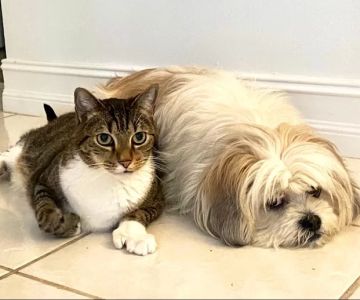- 1-Why-Homemade-Bird-Treats-Beneficial-for-Parakeets-and-Cockatiels
- 2-Nutritional-Considerations-for-Parakeet-and-Cockatiel-Treats
- 3-Easy-and-Popular-Recipes-for-Homemade-Bird-Treats
- 4-Tips-for-Making-Safe-and-Healthy-Bird-Treats-at-Home
- 5-Where-to-Find-Quality-Bird-Care-Products-and-Advice
1. Why Homemade Bird Treats Are Beneficial for Parakeets and Cockatiels
Creating homemade bird treats for parakeets and cockatiels offers numerous benefits that go beyond simple nutrition. First, homemade snacks allow you to control exactly what ingredients your feathered friends consume, eliminating unnecessary additives and preservatives often found in commercial products. This personalized approach supports better health, especially for birds prone to allergies or sensitive digestive systems.
Moreover, making treats at home is a rewarding way to deepen the bond between you and your pet. Birds are intelligent creatures, and offering a special treat can stimulate their curiosity and enrich their environment. Many parakeet and cockatiel owners have shared stories of their birds eagerly responding to homemade goodies, showing increased activity and enthusiasm.
In addition, crafting your own bird treats can be cost-effective over time. Rather than purchasing expensive commercial options, basic ingredients like seeds, oats, and fruits can be sourced affordably. This method ensures fresh, wholesome nutrition while keeping your budget in check.
1.1 Personal Experience with Homemade Treats
One parakeet owner, Jane, shared that after introducing homemade millet and fruit-based treats, her parakeet became noticeably more vibrant and interactive. She noticed her bird was more playful and showed less stress behaviors. Such experiences underline the value of homemade bird treats in enhancing pet wellbeing.
2. Nutritional Considerations for Parakeet and Cockatiel Treats
When preparing homemade bird treats, it’s crucial to balance nutrition carefully. Parakeets and cockatiels require diets rich in vitamins A, D, calcium, and proteins, while being low in fat and free from harmful substances. Seeds are a popular base but should be complemented with fresh fruits, vegetables, and grains to avoid nutrient imbalances.
Avoid ingredients such as avocado, chocolate, caffeine, and salt, which are toxic to birds. Additionally, treats should not replace the main diet but rather serve as occasional supplements that encourage natural foraging and mental stimulation.
2.1 Understanding Specific Dietary Needs
Cockatiels often benefit from calcium-rich supplements, especially during breeding seasons or molting phases. Parakeets, on the other hand, thrive on a varied diet that includes leafy greens and small fruits. Recognizing these subtle differences helps tailor treats that support each bird’s health optimally.
3. Easy and Popular Recipes for Homemade Bird Treats
There are many simple recipes that bird owners can try, using common ingredients that are safe and nutritious. Here are a few tried-and-tested recipes:
3.1 Millet and Honey Clusters
Mix millet seeds with a small amount of natural honey and oats, then shape into small clusters. Let them dry before offering to your bird. These treats are sweet, crunchy, and loved by both parakeets and cockatiels.
3.2 Veggie and Fruit Skewers
Thread small pieces of apple, carrot, and spinach onto a skewer or a clean stick. This treat encourages natural foraging behavior and provides hydration and vitamins.
3.3 Nut-Free Seed Bars
Combine sunflower seeds, flaxseeds, and pumpkin seeds with a little mashed banana as a binder. Press into a mold and refrigerate until firm. This is an excellent option for birds with nut sensitivities.
3.4 Case Study: Enhancing Cockatiel Diet with Homemade Treats
A Hidden Brook Veterinary client reported improvement in her cockatiel’s feather condition and energy after incorporating DIY seed bars twice a week. The bird was less prone to feather plucking, a sign of reduced stress and better nutrition.
4. Tips for Making Safe and Healthy Bird Treats at Home
Safety is paramount when crafting homemade bird treats. Always use fresh ingredients and clean utensils. Avoid any seasoning or additives that could harm your birds. Start by introducing small quantities to monitor your bird’s reaction and adjust recipes accordingly.
Consistency and texture matter too — birds enjoy crunchy and varied textures which help maintain beak health. Be mindful not to overfeed treats to prevent nutritional imbalance or obesity.
4.1 Avoiding Common Pitfalls
Some common mistakes include using sugary human foods, offering too many fatty seeds like sunflower seeds, and neglecting variety. Careful planning and consultation with avian veterinarians can prevent these errors.
5. Where to Find Quality Bird Care Products and Advice
For those who want to complement homemade treats with specialized bird care items, Hidden Brook Veterinary offers an excellent selection of bird-safe products, including supplements, toys, and diet advice tailored for parakeets and cockatiels. Their professional guidance ensures your bird receives the best possible care.
Whether you are a beginner or experienced bird owner, combining homemade treats with expert-recommended products creates a well-rounded approach to your bird’s health and happiness.











